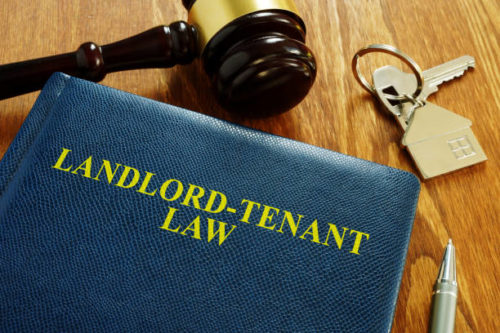So, you’re soon to become a landlord and are taking your first leap into the lettings process? As a first time landlord, you need advice and tips to make the process go smoothly. If you are becoming a landlord for the first time in the UK, read on to get helpful insights from our experienced lettings management team at Stanfords.
Guide for first time landlords in the UK
1. Use an agent
Being a landlord for the first time is no simple feat. There’s a whole new area of law to learn and an overwhelming amount of responsibilities. The simplest way to become a first time landlord is to get the maximum amount of support by using a landlords’ management service. From finding tenants to getting a plumber in to fix a leak, a management service makes it easy.
Find out more about why you should use fully managed letting services.
2. Treat it like a business
Whether you’re an accidental landlord through inheritance or a buy to let first time landlord, it’s always a good idea to treat it as a business. You need to take a professional approach to tenants, service providers and suppliers, and also do your maths to work out what will generate a good return.
You must comply with the law. You will also need to pay tax and National Insurance on income from your rental property, so it’s best to be aware of this from the beginning. You don’t pay tax on the first £1000 you earn renting out a property you own.
3. Find good tenants
The nature of the tenants will radically affect your experience of being a landlord for the first time. Good tenants pay their rent reliably, communicate effectively and respect the property, keeping it in good condition.
Finding good tenants can feel like luck. But there are some things you can do to improve the chances of finding good tenants, such as requesting references.
4. Keep clear records
From knowing when the next boiler service is due to the date your tenant paid their rent, you need to keep clear, organised and accurate records as a first time landlord. Indeed, if we are asked for the most important piece of first time landlord advice, it would be to keep clear records from day one.
There is a huge amount of administration that is generated as a landlord. Good records ensure that you don’t waste time or even incur accidental expenses.
5. Communicate effectively
Another of our best first time landlord tips is to communicate effectively with tenants, suppliers, service providers, and your letting service. Many problems can be headed off at the pass with calm and clear communication.
Respond to tenants promptly, and they are more likely to do the same for you. Put things in writing as much as possible, and retain a friendly yet professional approach.
6. Prioritise health and safety
Health and safety should be a paramount consideration as a first time landlord. You have a number of obligations as a landlord and these should be taken seriously. Core responsibilities include gas and electrical safety and the necessary certification, as well as fire safety including smoke and carbon monoxide detectors.
In England and Wales, councils can inspect the property if the tenants ask them to, undertaking a Housing Health and Safety Rating System Inspection.
7. Keep on top of maintenance
It’s tempting to skip maintenance because it eats into your bottom line. As long as it doesn’t affect safety, why not? Well, there are lots of reasons not to skip property maintenance. Firstly, regular and routine maintenance is usually the most cost-effective and time-effective way of managing a property and preventing bigger problems down the line.
Additionally, good maintenance ensures that your tenants are happy and it’s much easier to stick with the same tenants than to face regular changes. With a properly maintained property, you can also expect higher rental values.
8. Consider energy efficiency improvements
You may think that as you aren’t paying the heating bills, the energy efficiency of the property doesn’t really matter to you. However, when you rent out a property in England and Wales you need to get an Energy Performance Certificate. To get this, you need to meet Minimum Energy Efficiency Standards (MEES).
What’s more, the expectations for this are getting more stringent, so it’s worth improving the energy efficiency of your property as soon as possible.
9. Be fair
It should be a vital part of every first time landlord guide to advise new landlords of their responsibilities to be fair. The property is the tenant’s home and they have rights to uninterrupted and respectful enjoyment of it.
As such, there are a number of rules that govern things such as gaining access to the property – you cannot just turn up, for example, but must give 24 hours’ notice, except in an emergency. Consider things from the tenant’s perspective, and what you would be happy to deal with in your own home.
10. Keep their deposit safe
It is vitally important to keep your tenant’s deposit safe. You must, by law, put it into a government approved deposit scheme. The deposit must stay there until the end of the tenancy. There are various different deposit schemes. An advantage of using a landlord management service is that they can organise all of this for you.
11. Understand landlord insurance
Standard home insurance isn’t going to cut it as a landlord. Technically, there’s nothing to stop you using this, but we highly recommend that landlords take out dedicated landlord insurance. This will protect your financial interests in terms surrounding things like accidental damage, loss of rent, and emergencies. Additionally, you may also consider landlord legal expenses insurance. This usually comes with additional services, such as a legal advice helpline which can be particularly useful for a first time landlord.
There is a lot to learn when becoming a landlord for the first time in the UK. Other questions you may have could include whether to allow pets or how to evict problem tenants. That’s what our landlord management service is for. Whatever your question, we are here to help.

